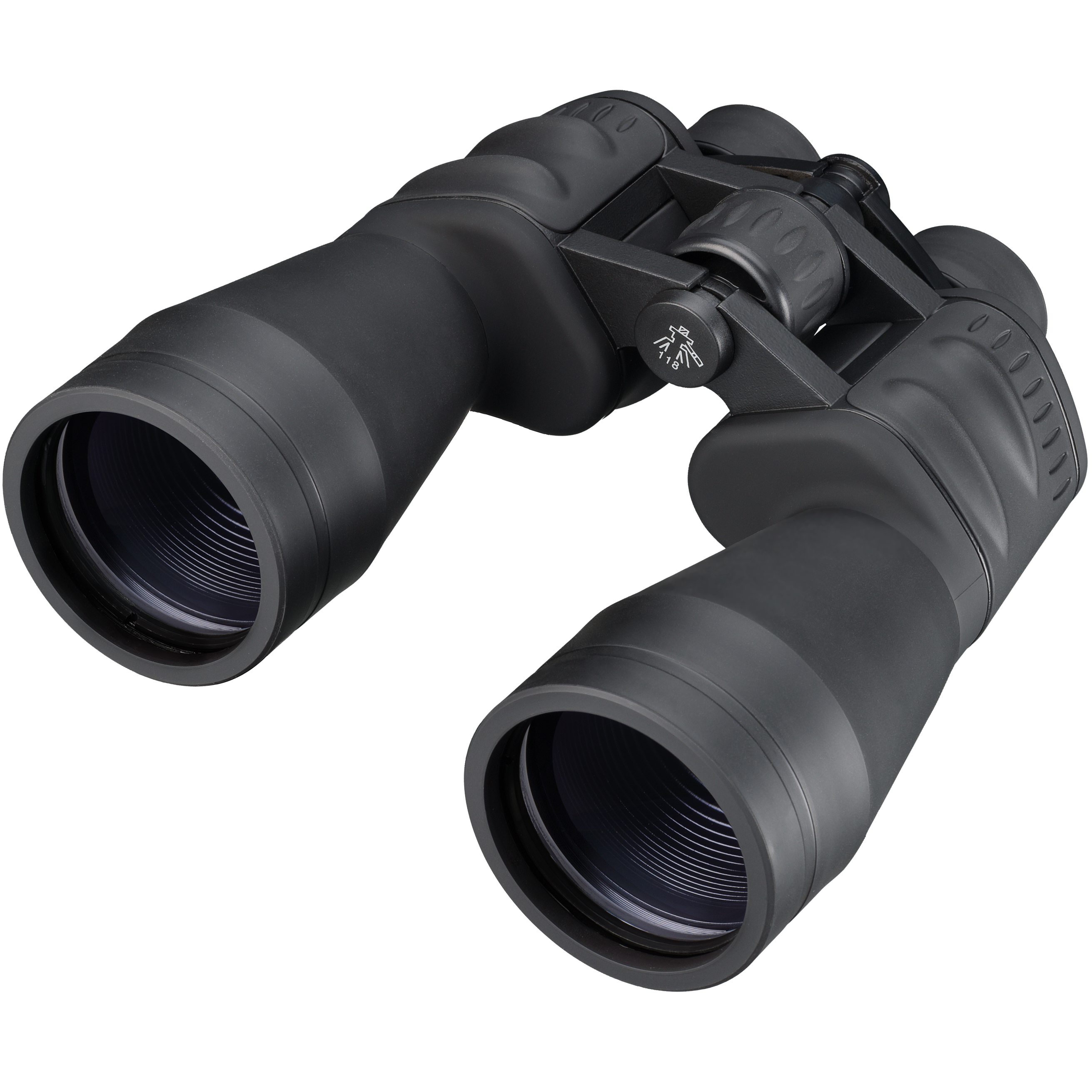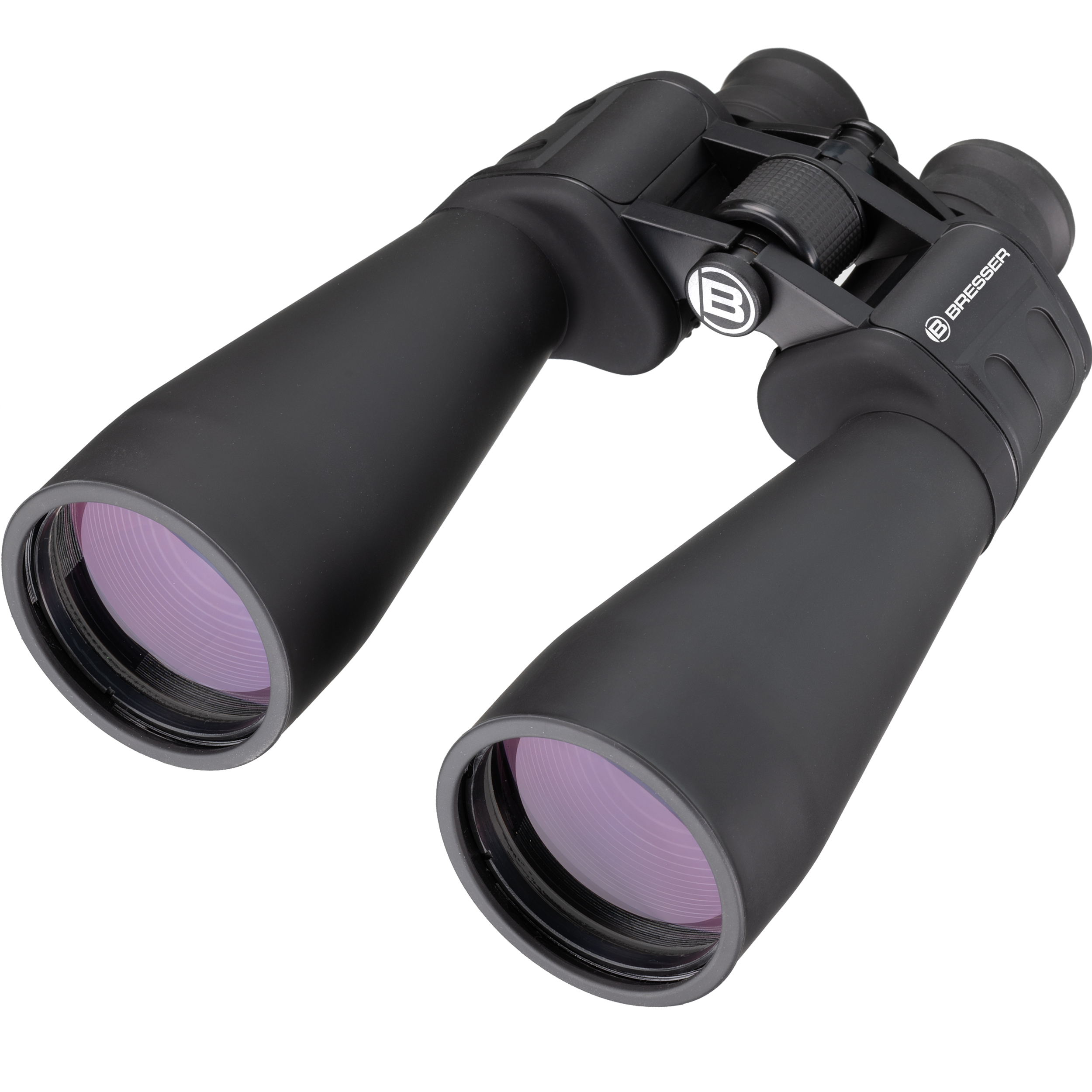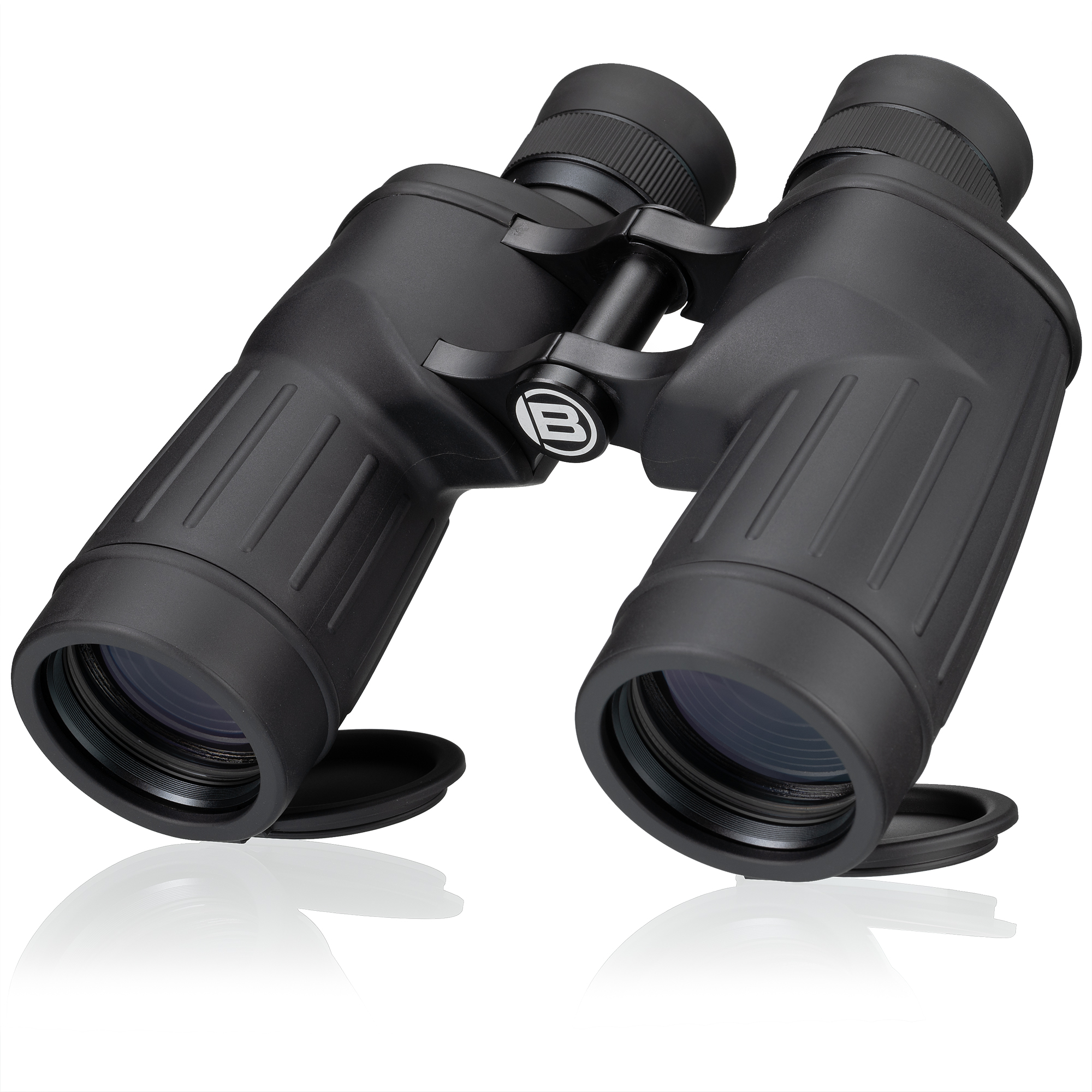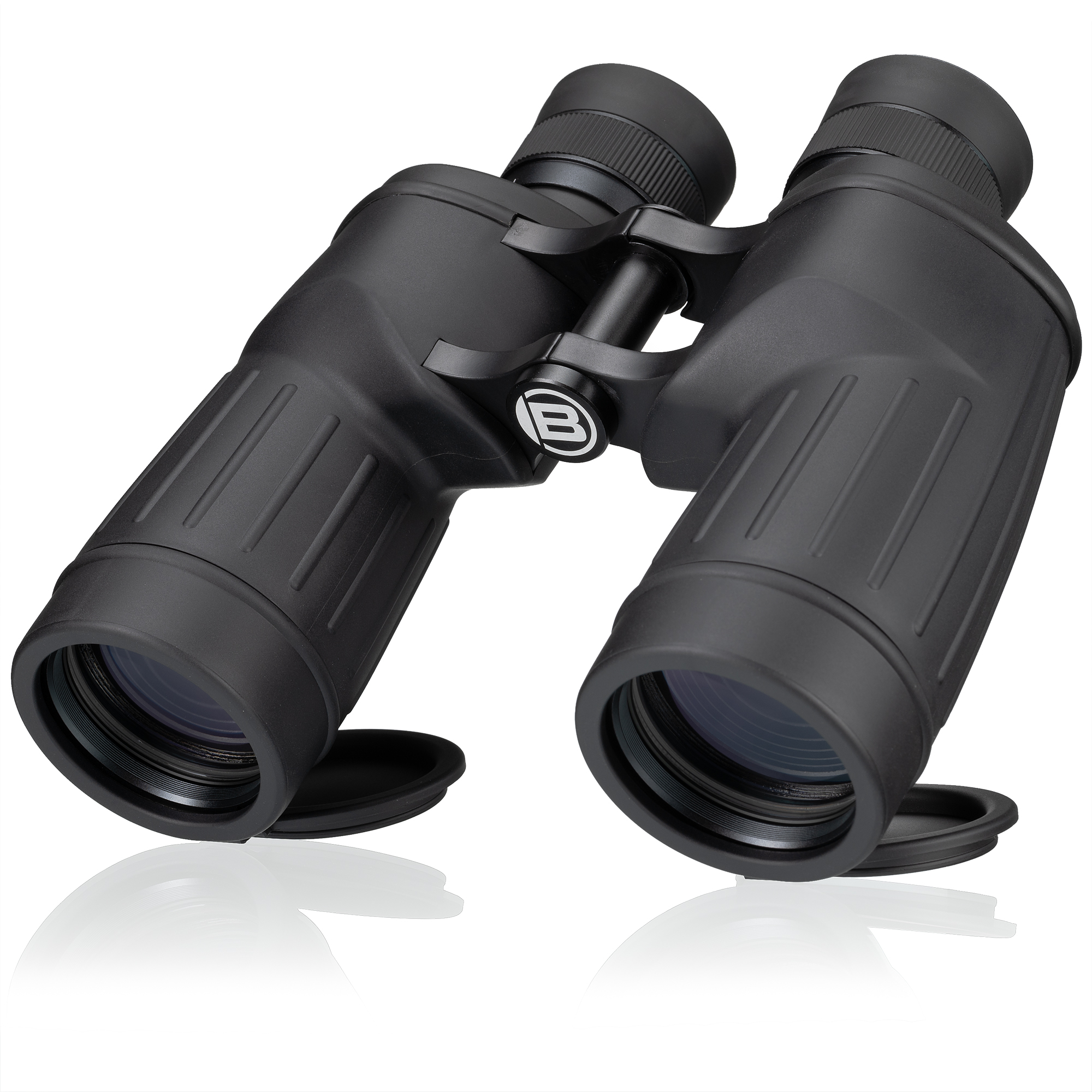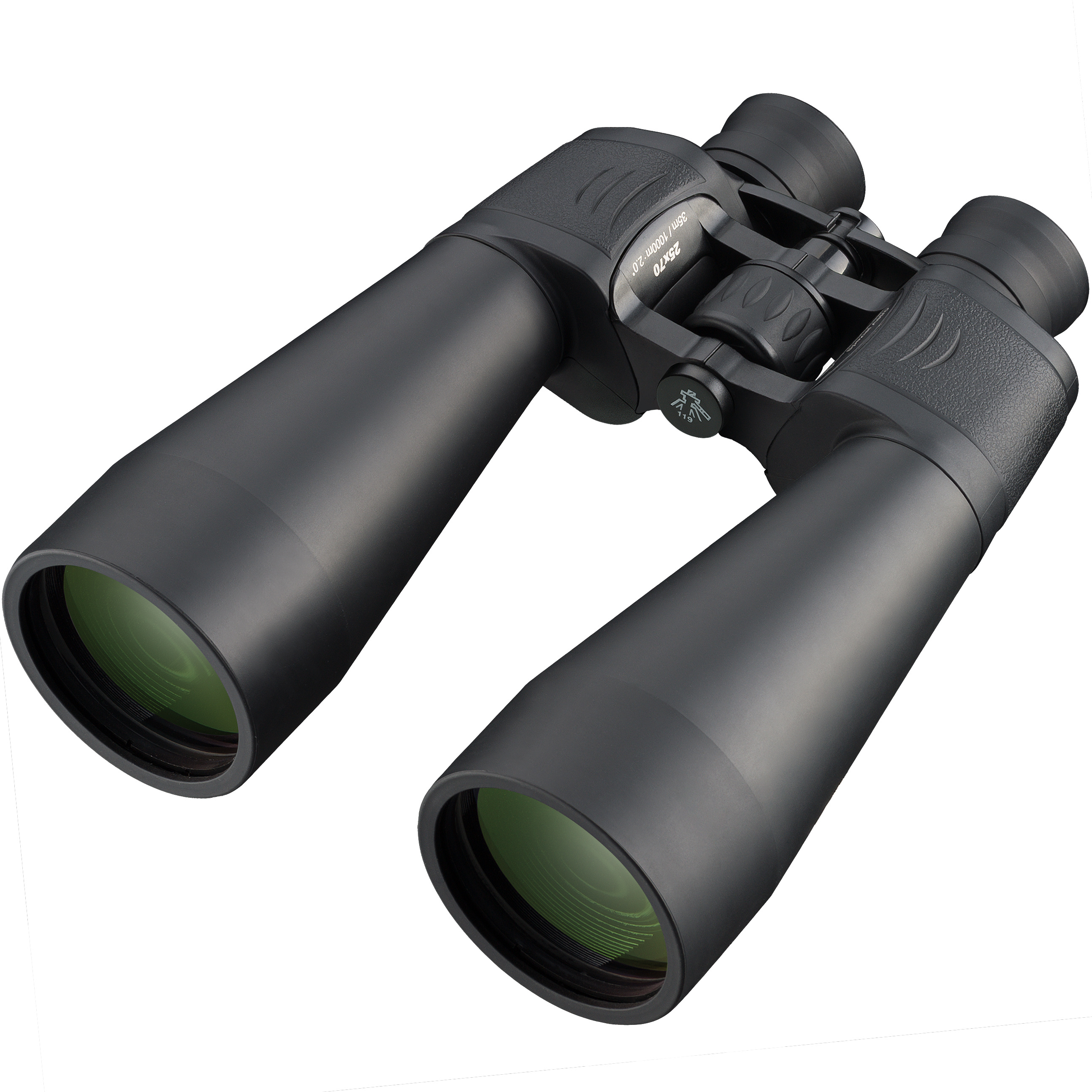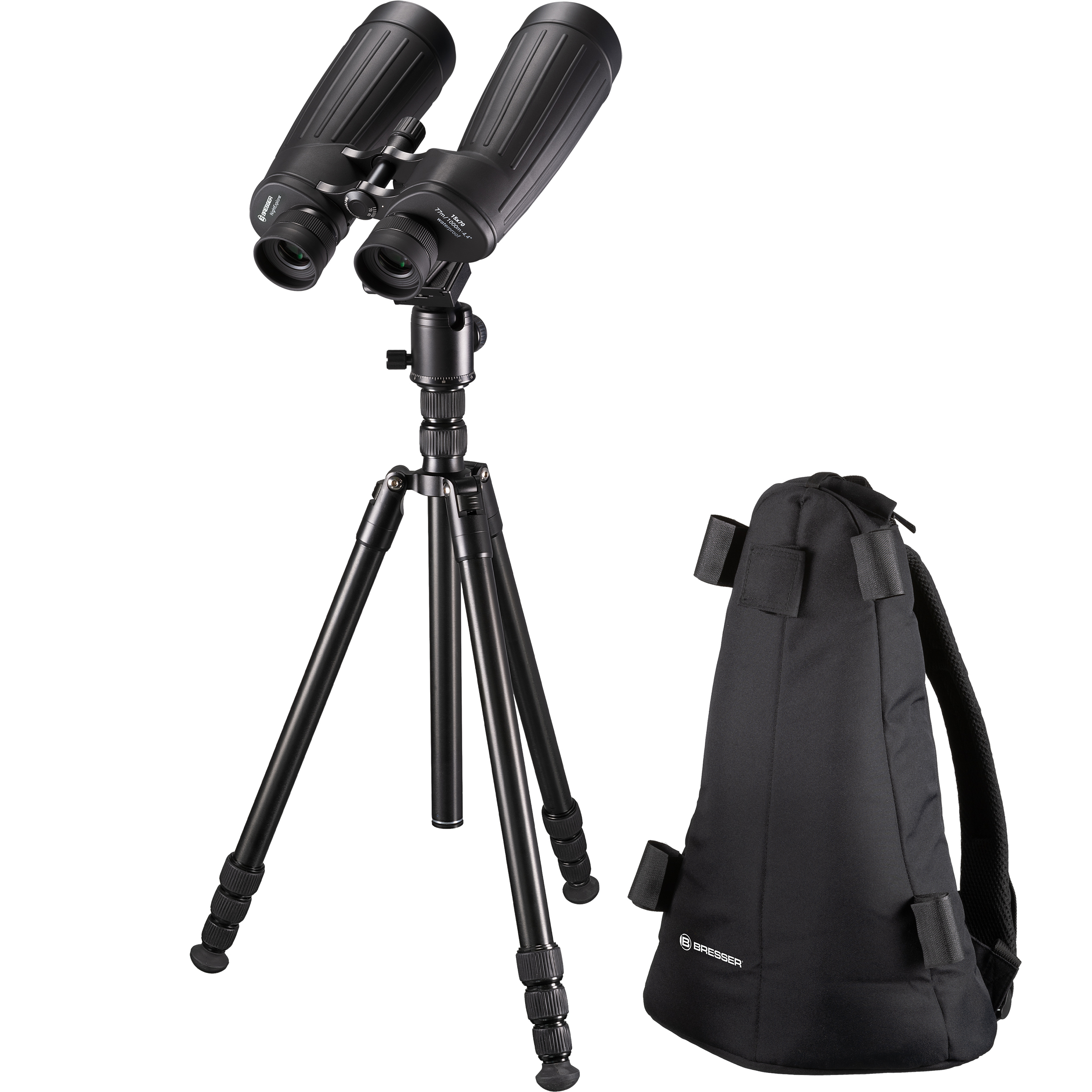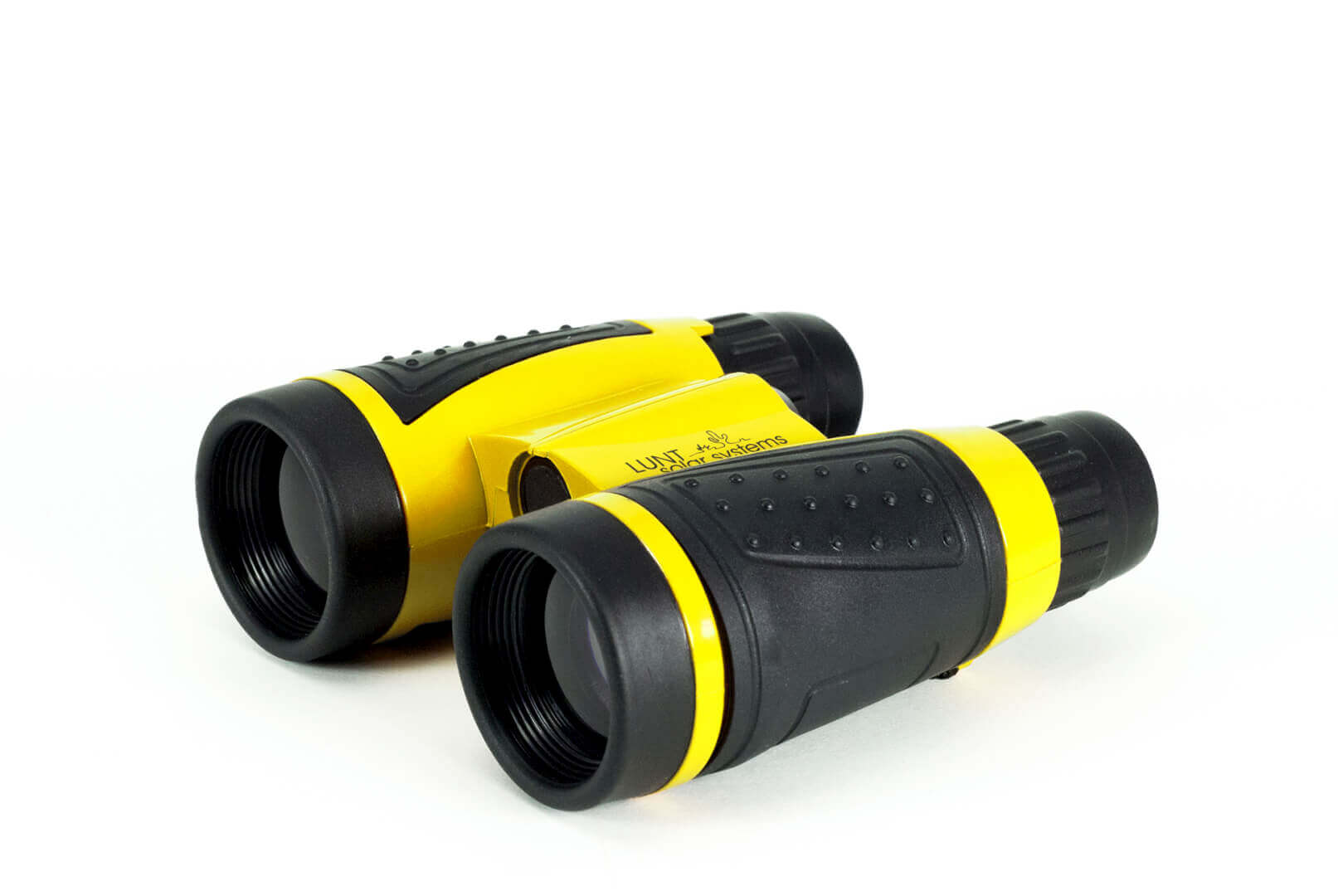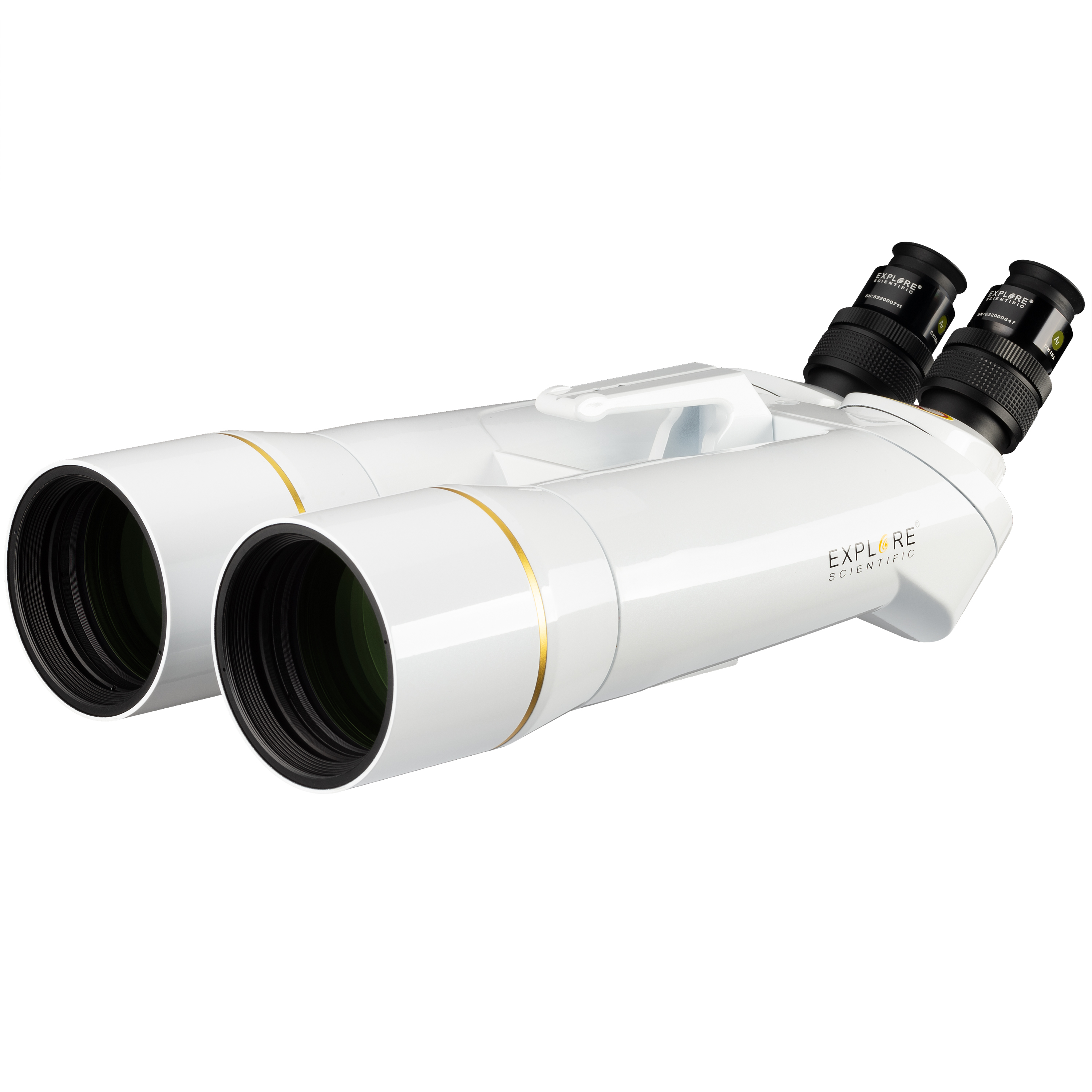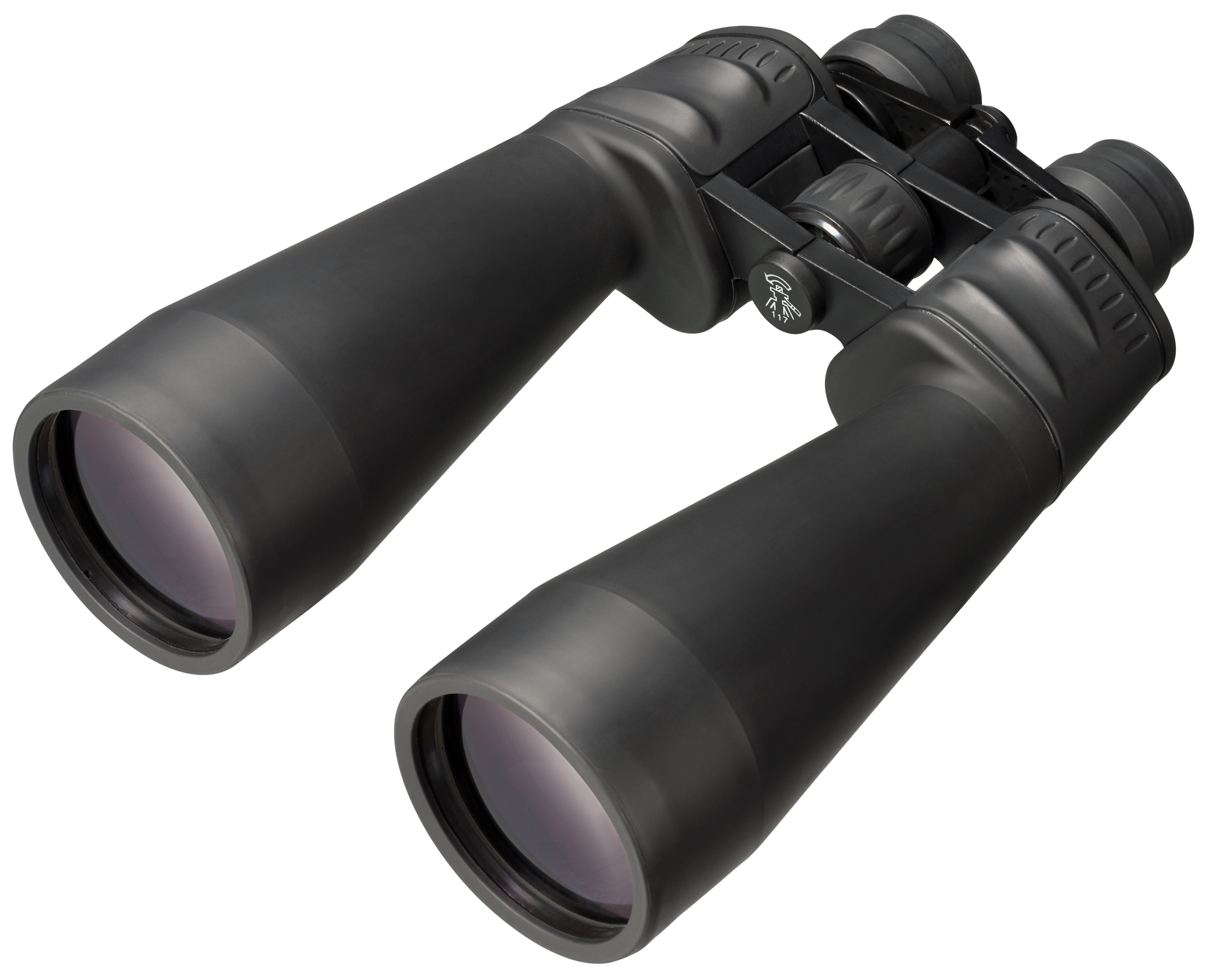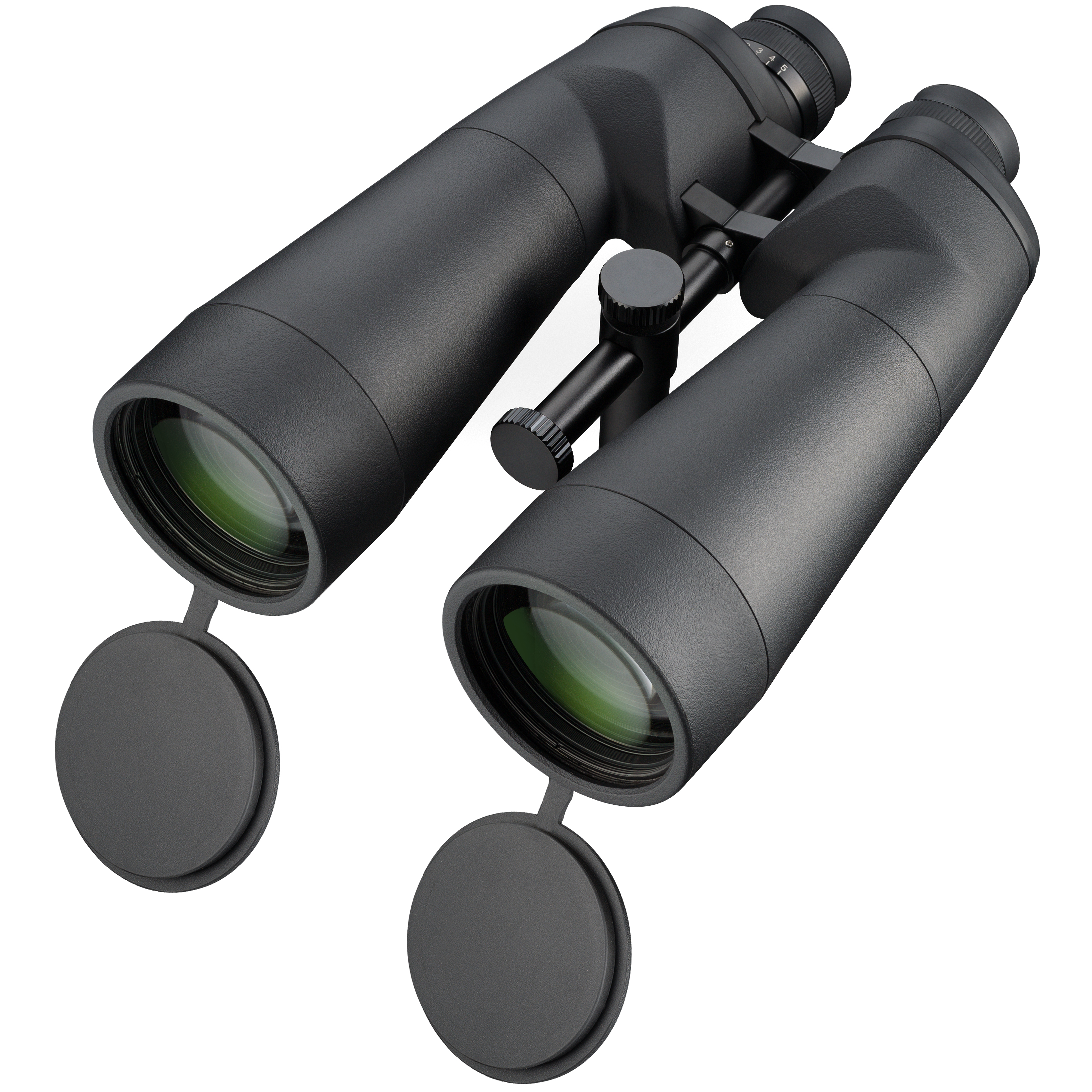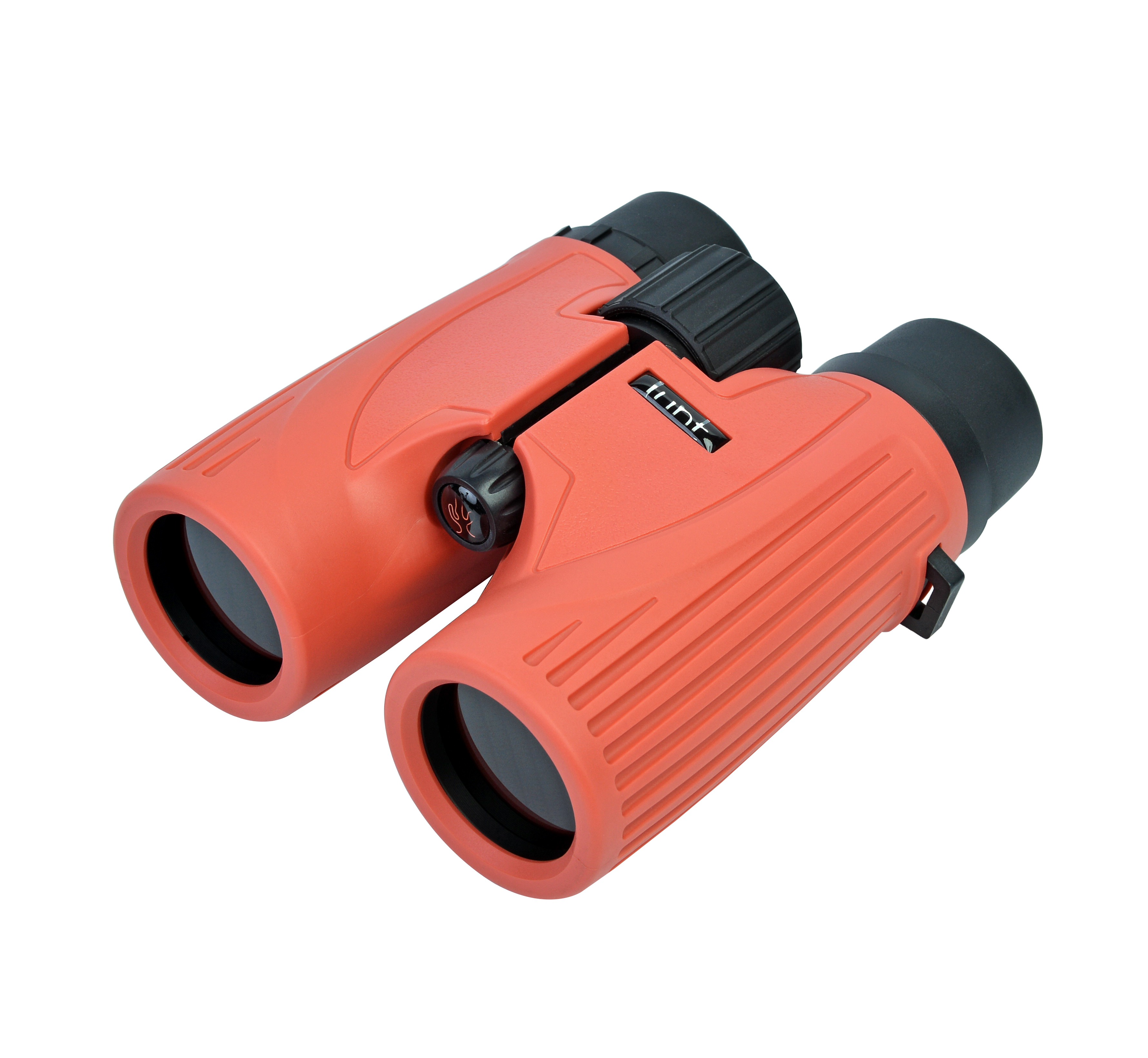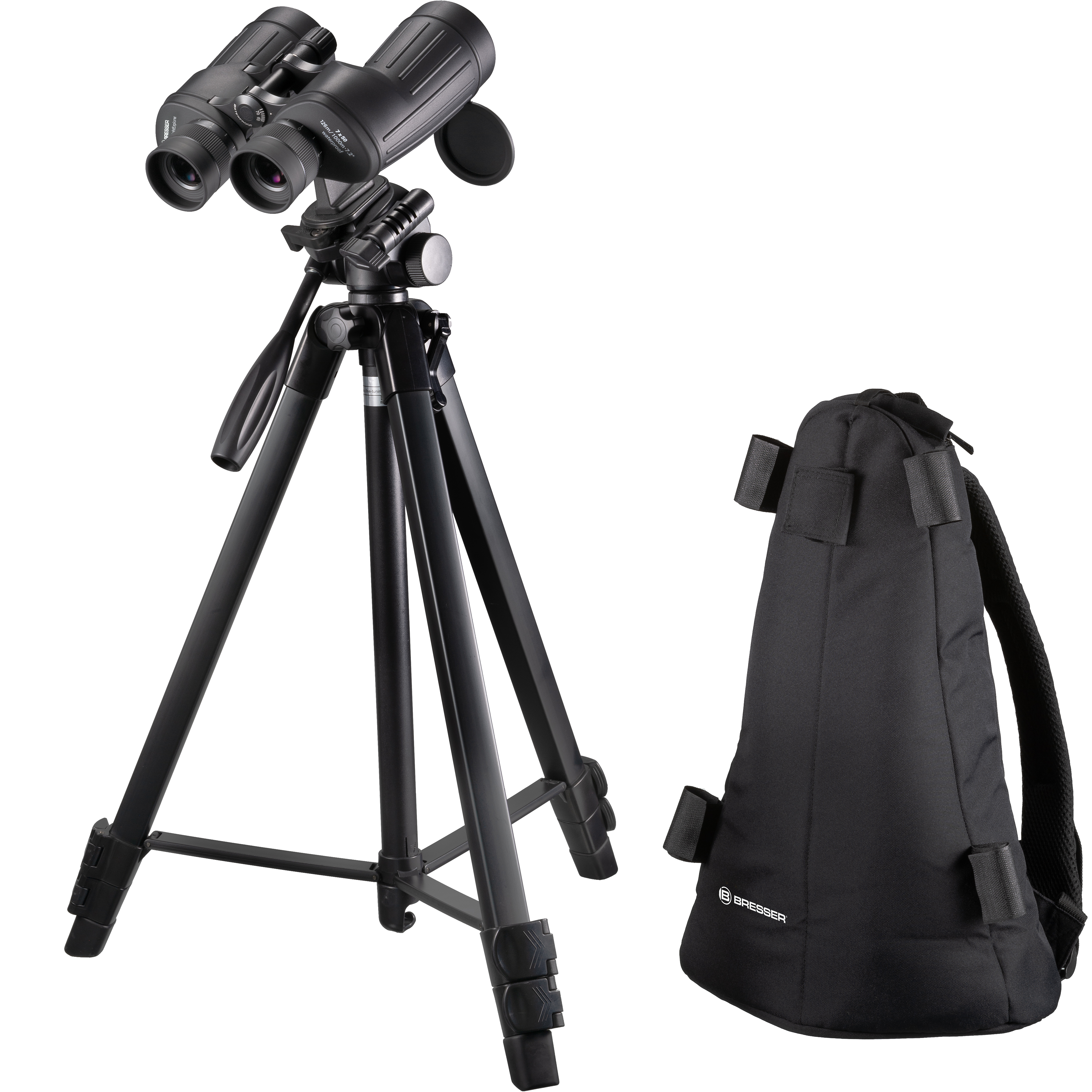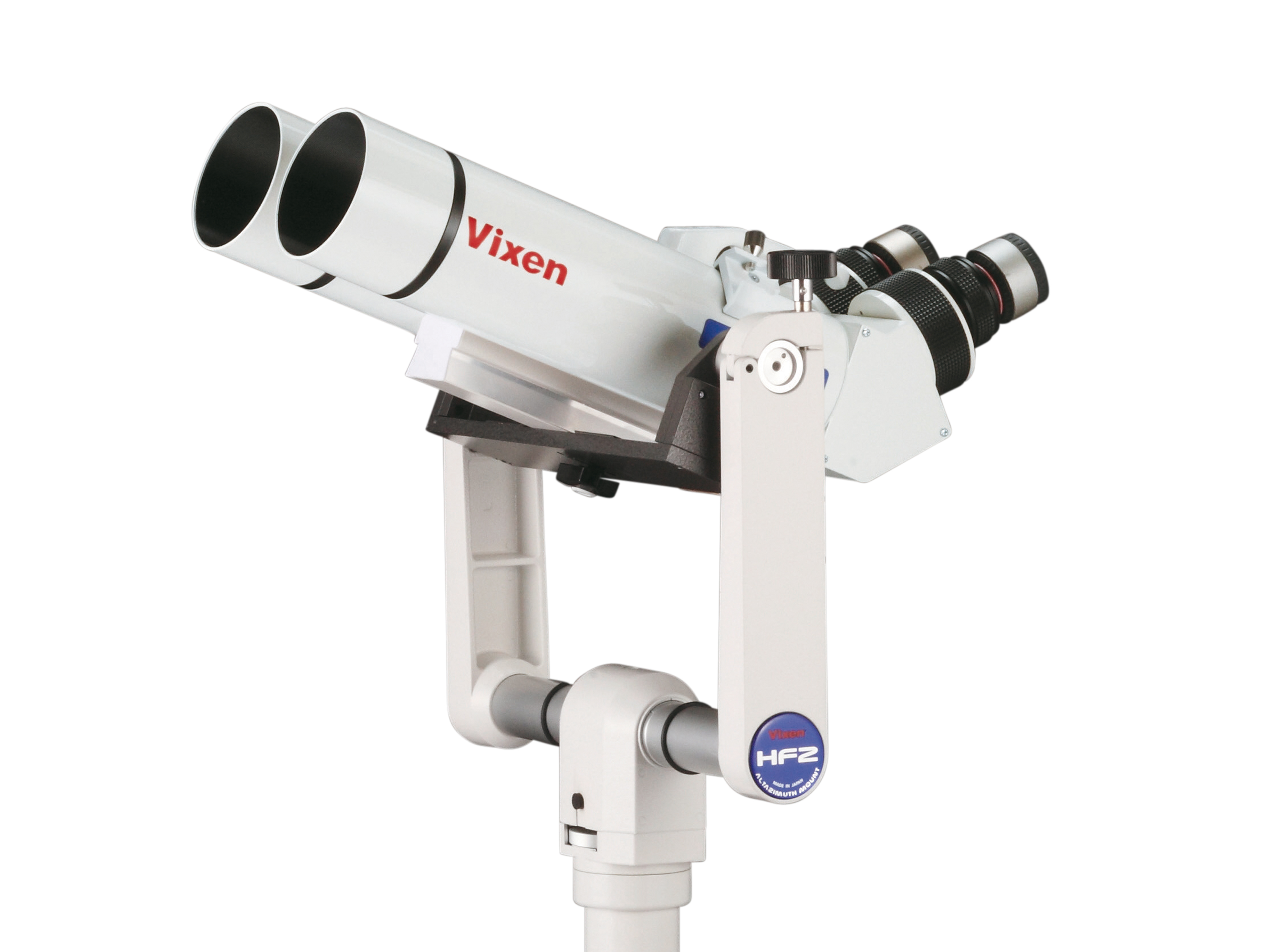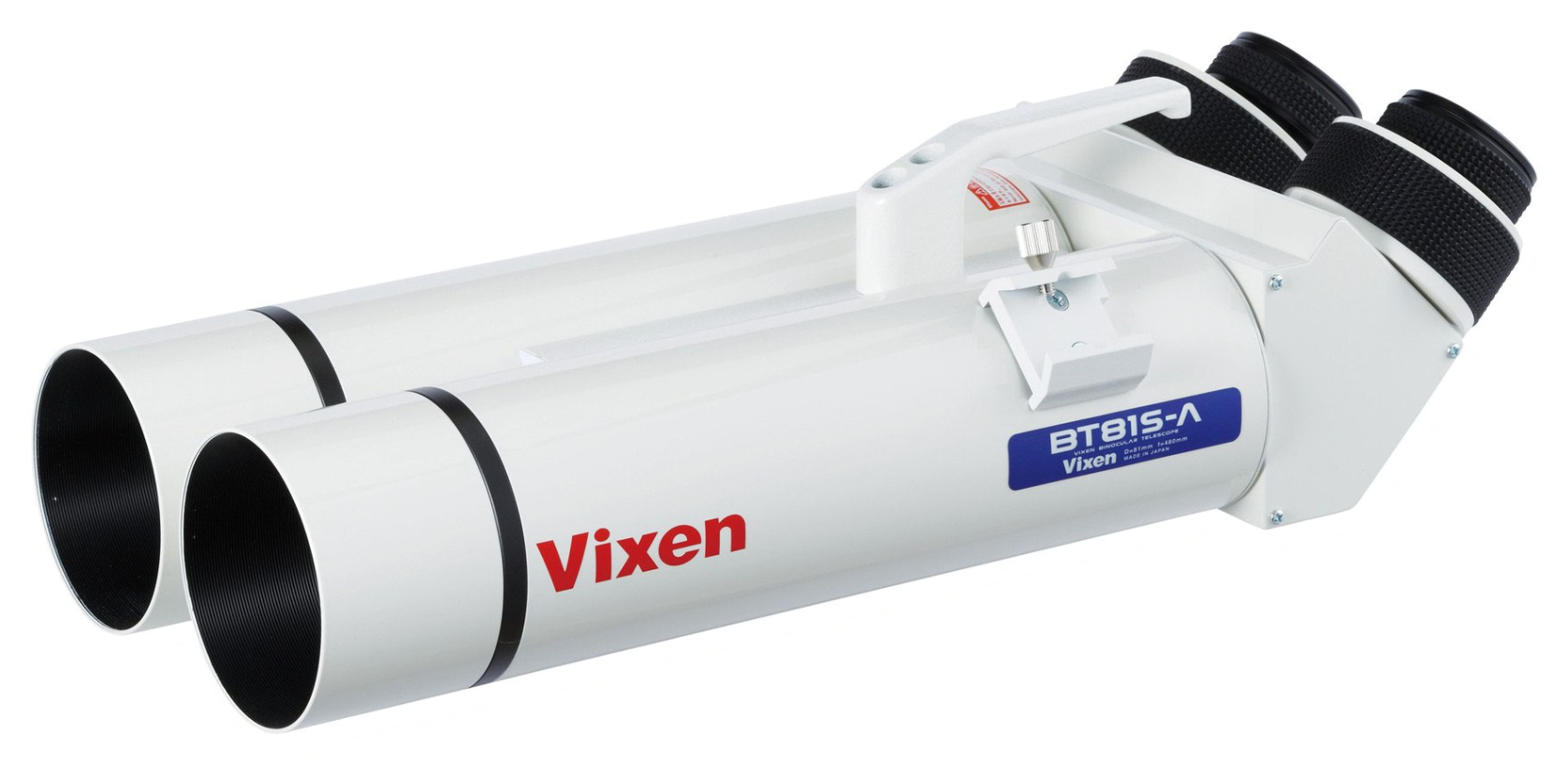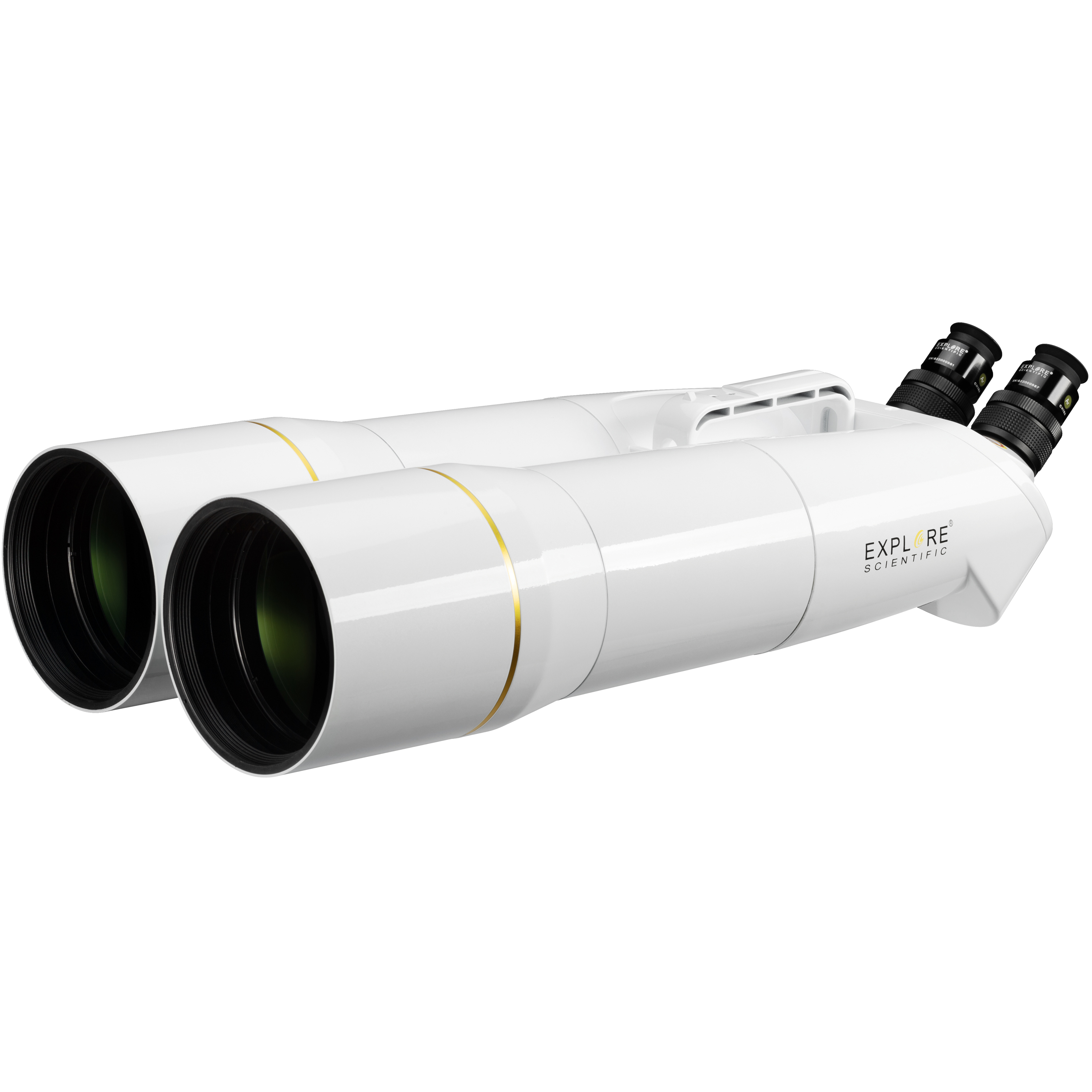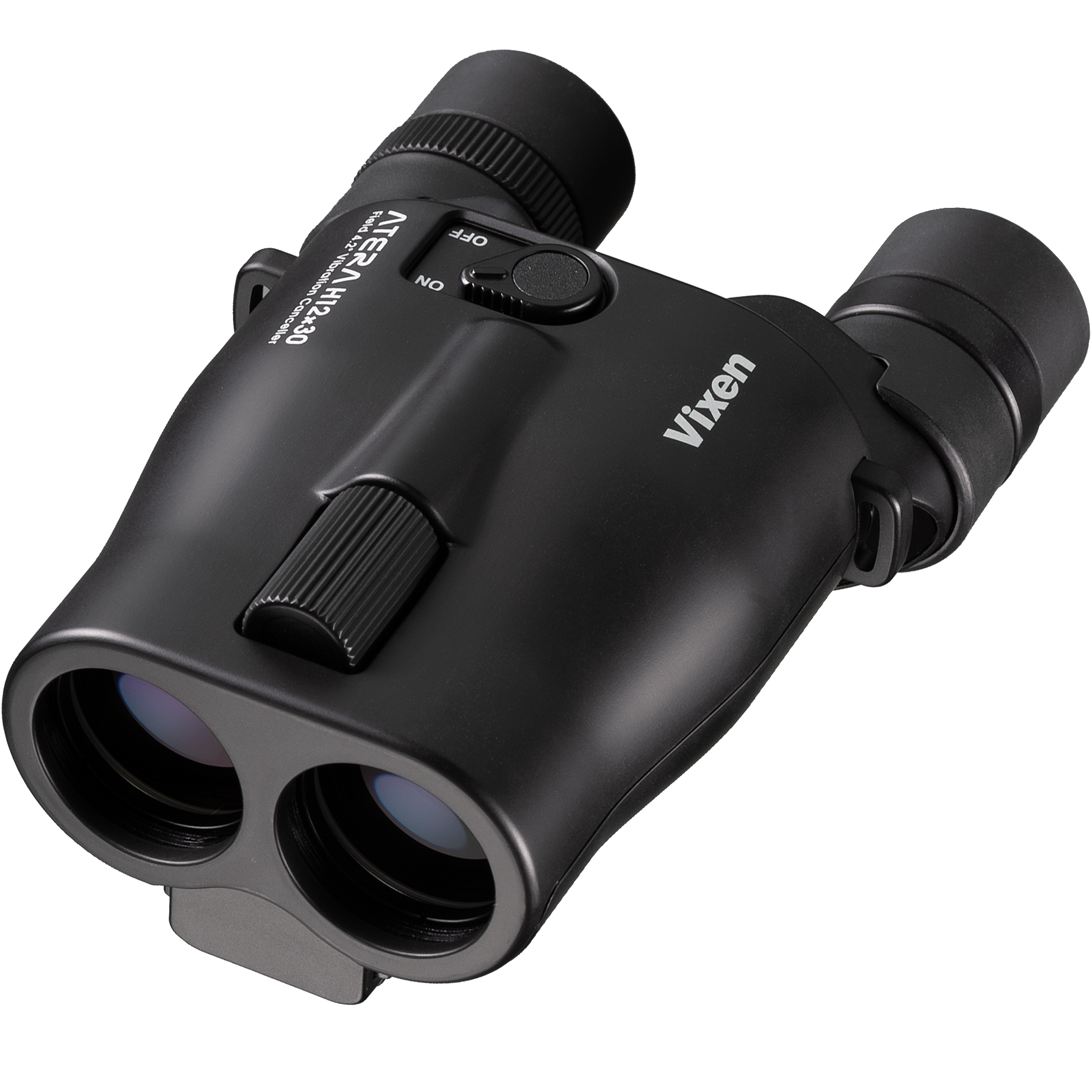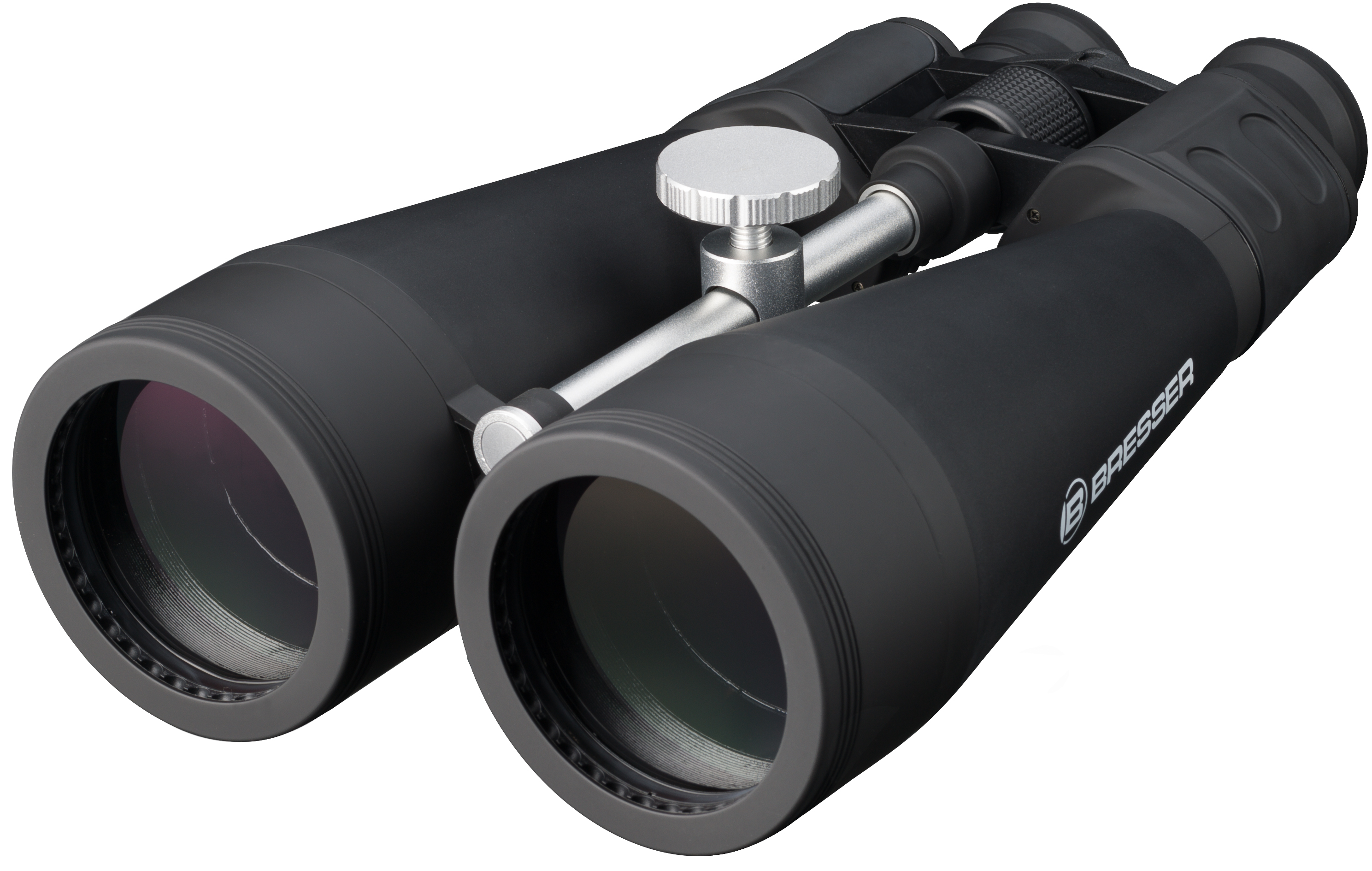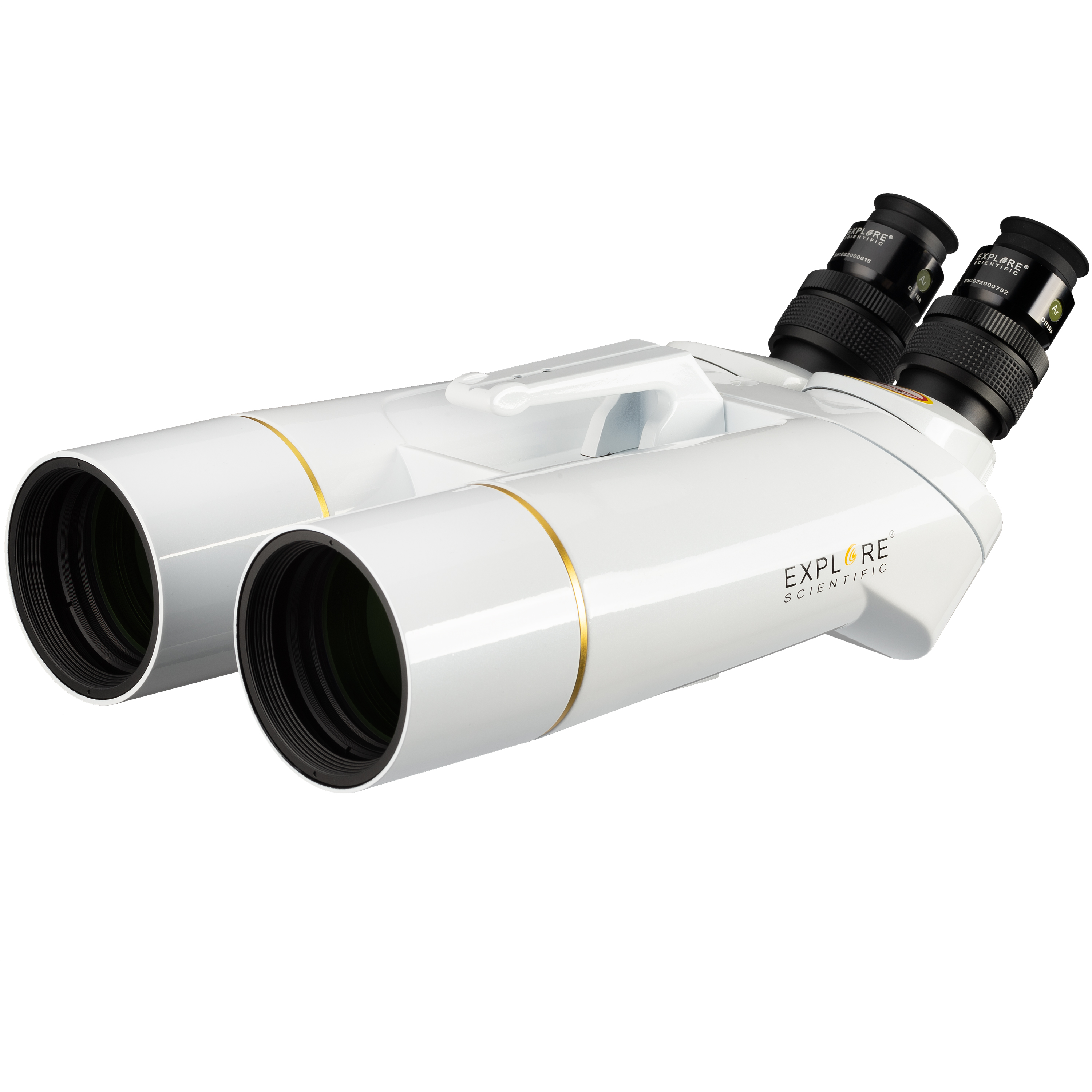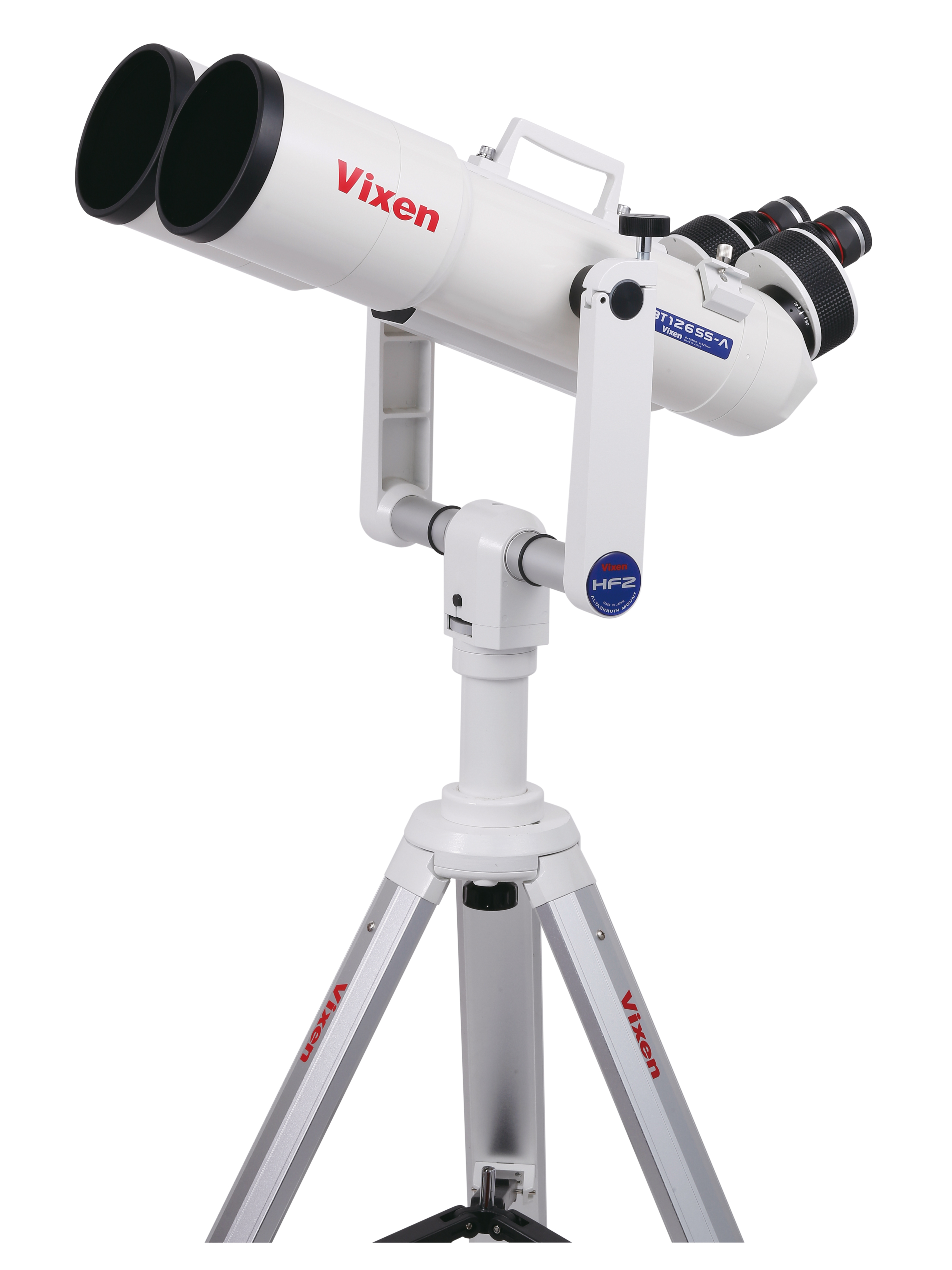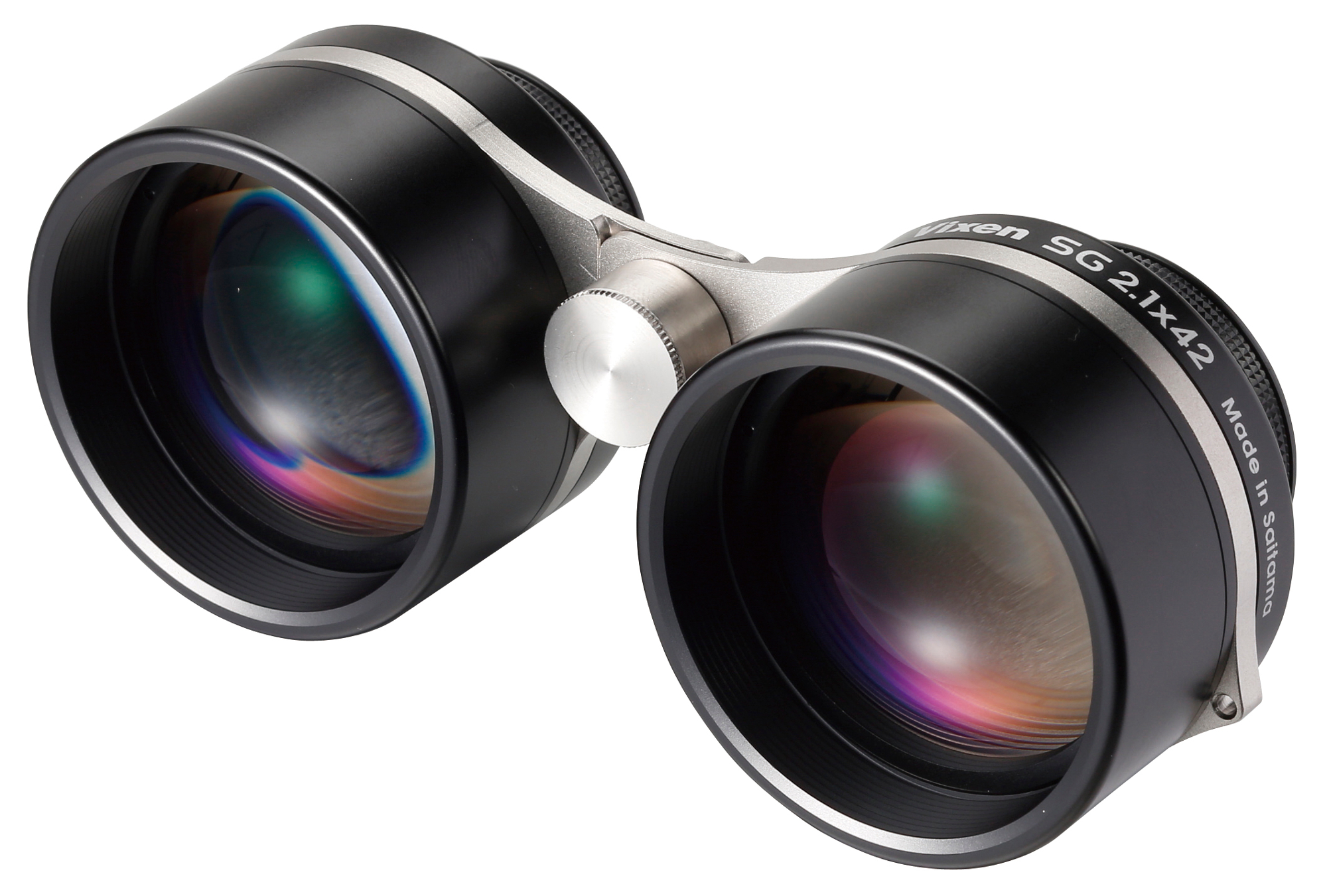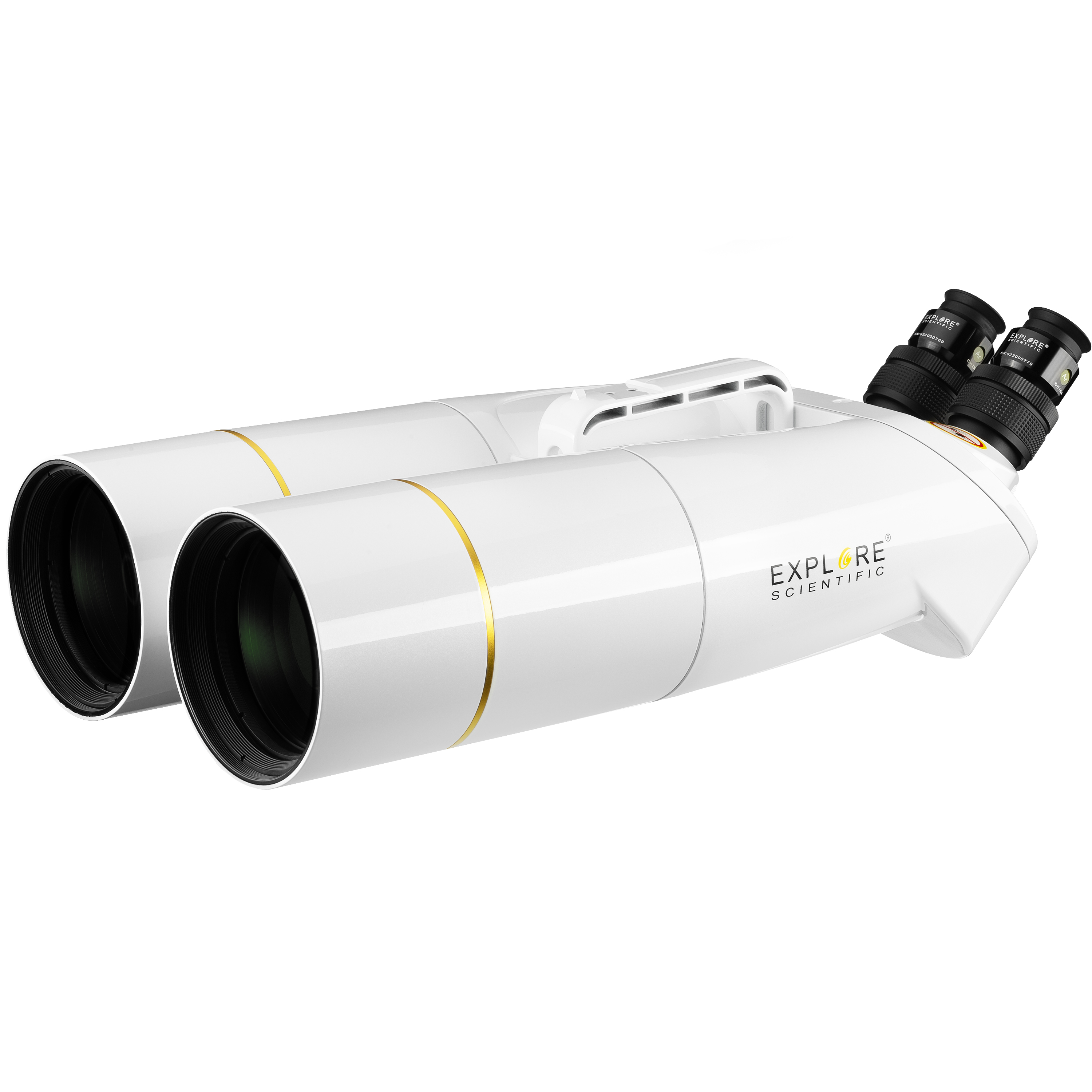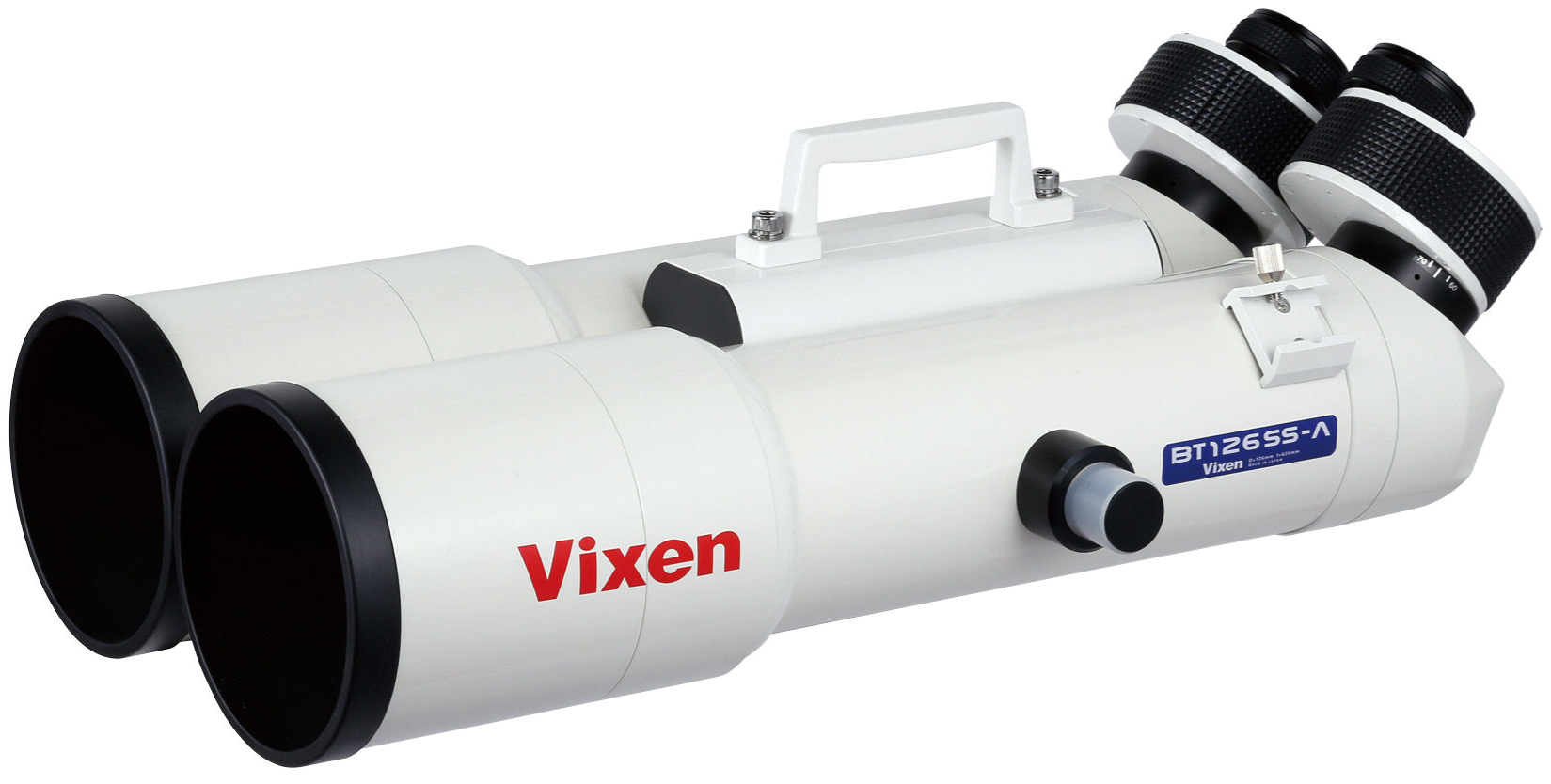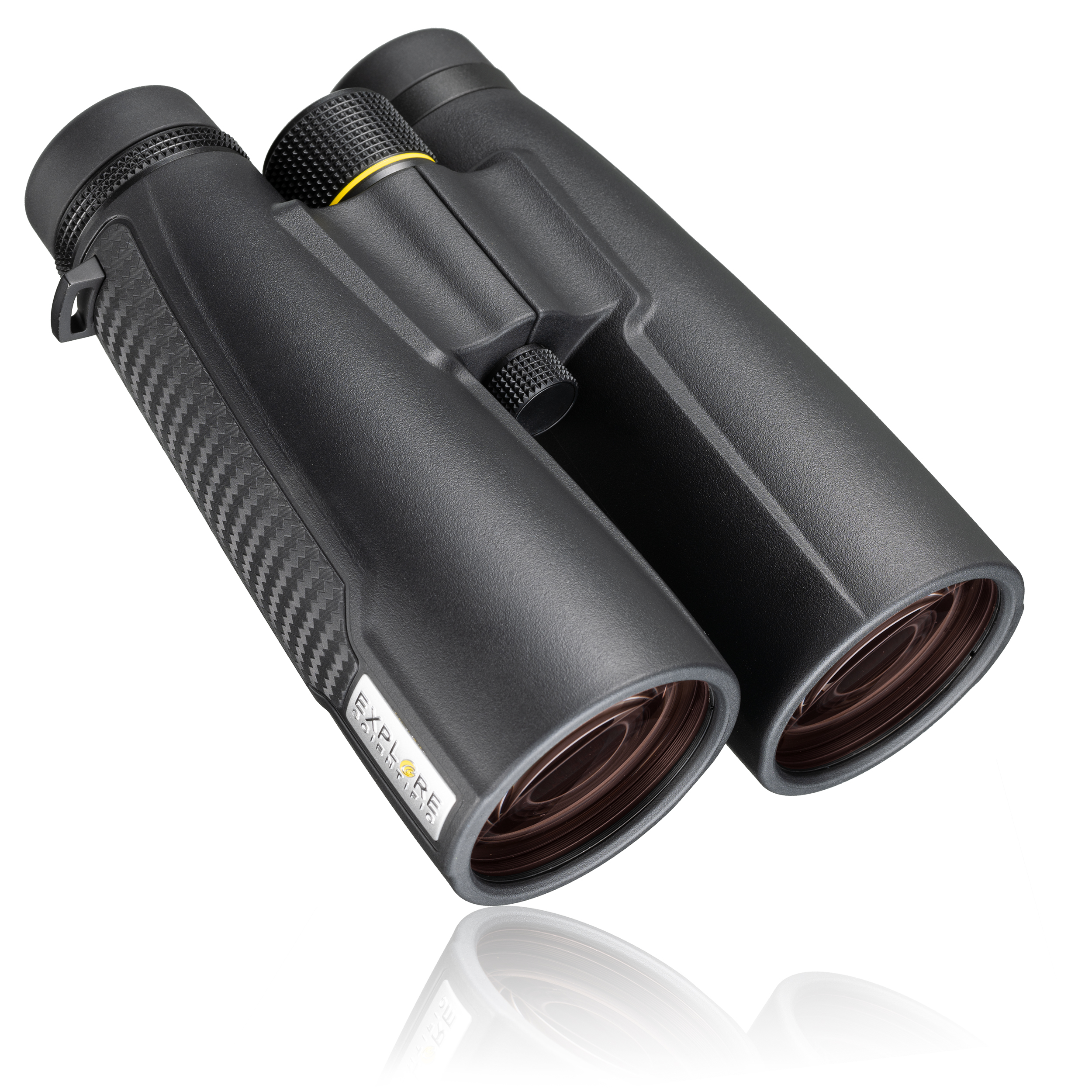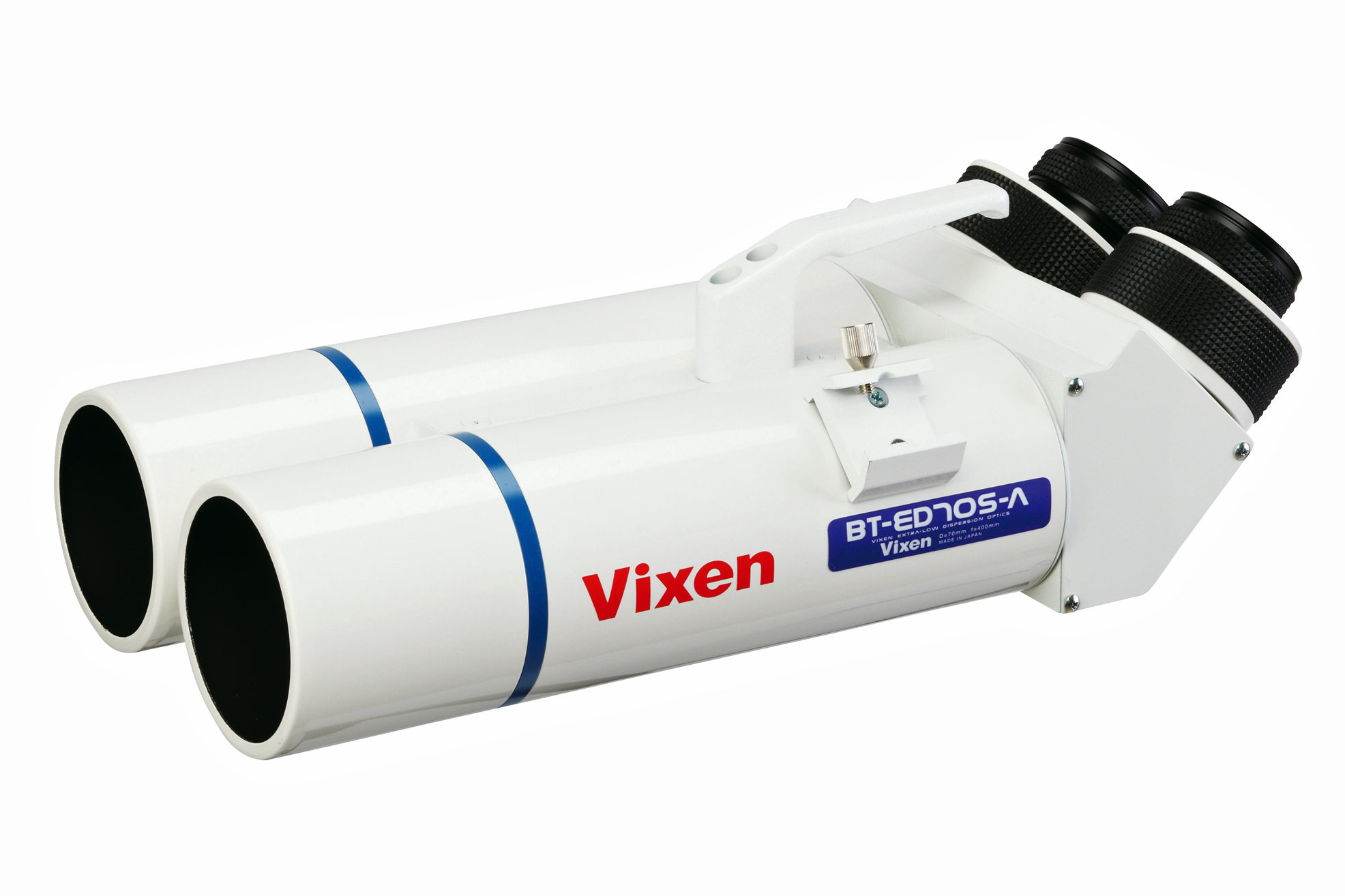
Exploring the Universe with Astronomy Binoculars from BRESSER UK
Astronomy enthusiasts can look forward to extraordinary stargazing experiences with BRESSER UK's array of astronomy binoculars. Backed by decades of experience in optical excellence, BRESSER brings a profound understanding of the needs of amateur and professional astronomers alike. Our innovative and precision-engineered binoculars are designed to unlock the mysteries of the night sky in stunning clarity. Whether you're a seasoned stargazer or a budding astronomer, our selection will elevate your celestial observations to new heights.
What Makes Binoculars Good for Astronomy?
What Are the Best Binoculars for Astronomy Beginners?
Binoculars
The pursuit of astronomy demands equipment that can pierce the darkness of the night sky to reveal its wonders. Binoculars, designed specifically for astronomical use, possess unique features that make them especially adept for this task. Here's what sets them apart:
- Large Lens Diameter: The lens diameter, or the size of the front lenses, is paramount in astronomy binoculars. Large lenses (from 50 mm) are crucial because they have a higher light-gathering capacity. This feature is vital for astronomy where you're observing objects in very low light conditions. The larger the lens, the more light it can capture, making faint celestial bodies like distant stars, galaxies, and nebulae brighter and more visible.
- Optimal Magnification: Astronomy binoculars often offer a range of 7x to 10x magnification for hand-held models providing a wide field of view. They are used to scan the night sky and observe large objects. Binoculars with 15x to 20x magnification are used for more detailed views of the Moon’s craters, larger planets or bright star clusters. Due to the higher magnification they must be mounted on a tripod for shake-free observations. Special large binoculars even go a step further. These high-performance models come with interchangeable eyepieces and a large focal length allowing for much higher magnifications. This feature, combined with their large lenses, enhances both the detail and brightness of celestial objects.
- High-Quality Optics: The use of high-grade optical glass, such as BaK-4, and ultra-modern surface coatings on all prisms and lenses further improve the binoculars' ability to transmit light efficiently. This results in clearer, brighter, and more contrast-rich images, allowing for detailed observations of celestial phenomena.
- Sturdy Mounting Options: Due to the higher magnifications and large size, astronomy binoculars can be heavy and unwieldy. This makes a stable mounting option, like a tripod, essential for shake-free, prolonged observation sessions.
- Adaptability for Glasses Wearers: Features like adjustable eyecups and sufficient eye relief make it comfortable for those who wear glasses to use these binoculars without missing out on the full field of view.
- Focus Mechanism: A precise and smooth focus mechanism is important for astronomy binoculars, allowing you to quickly and accurately bring celestial objects into sharp focus.
What Are the Best Binoculars for Astronomy Beginners?
For beginners eager to embark on their astronomical journey, binoculars are a fantastic tool to start with, offering a wonderful introduction to the night sky. They are easier to handle than a telescope and serve as a great way to "walk through the Milky Way," revealing the vastness of space in a more accessible manner. Here are some important factors to consider when choosing your first astronomy binoculars:
- User-Friendliness: Select binoculars that are easy to use, ensuring a smooth start to your stargazing adventures. Features like a central focus wheel and comfortable grip can make your initial foray into astronomy more enjoyable.
- Clarity of Image: Opt for binoculars that provide clear, crisp images. Good image quality will make the experience more rewarding and encourage continued interest in astronomy.
- Durability and Weather Resistance: For newcomers who are still learning how to handle and care for optical equipment, choosing binoculars that are durable and weather-resistant is wise. This ensures that the binoculars can withstand occasional mishandling and are suitable for outdoor use.
- Versatility for Various Interests: When selecting your first astronomy binoculars, consider their potential for various hobbies. If they are suitable for nature observation or bird watching as well, this ensures that your binoculars remain a valuable asset, even if astronomy turns out not to be your primary interest. They provide the flexibility to pivot to terrestrial viewing, allowing you to enjoy and appreciate the details of the natural world around you.
- Affordability: As you're starting out, it's important to find a balance between quality and affordability. BRESSER UK provides a range of options including complete sets with tripod and backpack that offer good value. Thus, you get a quality experience without a hefty price tag.
Is a Telescope or Are Binoculars Better for Astronomy?
When diving into the world of astronomy, it's essential to consider the specific applications and your observational preferences to determine whether a telescope or binoculars – or even a combination of both – are the best fit for you. Here are some key differences to guide your decision:
| Feature | Telescope | Binoculars |
| Magnification | Higher, for detailed close-up views | Lower, suitable for wide-field viewing |
| Aperture | Larger, ideal for distant celestial objects | Smaller, limits visibility of faint objects |
| Suitability | Best for detailed astronomical study | Great for casual sky watching and constellations |
| Portability | Less portable, requires setup | Highly portable, easy for spontaneous use |
Large binoculars, which can also be called double refractor telescopes, are a special kind of binoculars, which offer compelling advantages. Each eye gets its own complete lens telescope, enhancing the light-gathering capacity and providing a stunningly vivid viewing experience. Observing with both eyes not only feels more natural and relaxed but also enhances detail recognition and minimizes eye fatigue. This dual-eye approach is particularly beneficial in astronomy, where discerning the finest details can significantly enhance the observational experience.
In essence, the choice between telescopes and binoculars, including the larger binocular variants, hinges on your specific astronomical interests, the level of detail desired, and the need for portability and ease of use.
Your Stargazing Companion: BRESSER UK's Commitment to Quality and Service
At BRESSER UK, we're not just about offering a wide range of astronomy binoculars; we're about ensuring you have the best possible experience as you explore the cosmos. Our commitment to quality, customer service, and an extensive selection sets us apart, making us a trusted companion for your astronomical journey. Whether you're observing the Milky Way, tracking distant planets, or even using our versatile binoculars for daytime nature observations, our products are designed to enhance every aspect of your viewing experience.
Ready to Reach for the Stars? Then choose from our premium range of astronomy binoculars, perfect for every level of stargazing enthusiast!

